6 start with B start with B
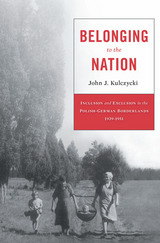
When the Nazis annexed western Poland in 1939, they quickly set about identifying Polish citizens of German origin and granting them the privileged legal status of ethnic Germans of the Reich. Following Germany’s defeat in World War II, Soviet-dominated Poland incorporated eastern Germany and proceeded to do just the opposite: searching out Germans of Polish origin and offering them Polish citizenship. Underscoring the processes of inclusion and exclusion that mold national communities, Belonging to the Nation examines the efforts of Nazi Germany and postwar Poland to nationalize inhabitants of the contested Polish-German borderlands.
Histories of the experience of national minorities in the twentieth century often concentrate on the grim logic of ethnic cleansing. John Kulczycki approaches his topic from a different angle, focusing on how governments decide which minorities to include, not expel. The policies Germany and Poland pursued from 1939 to 1951 bear striking similarities. Both Nazis and Communist Poles regarded national identity as biologically determined—and both found this principle difficult to enforce. Practical impediments to proving a person’s ethnic descent meant that officials sometimes resorted to telltale cultural behaviors in making assessments of nationality. Although the goal was to create an ethnically homogeneous nation, Germany and Poland allowed pockets of minorities to remain, usually to exploit their labor. Kulczycki illustrates the complexity of the process behind national self-determination, the obstacles it confronts in practice, and the resulting injustices.
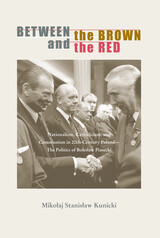
Between the Brown and the Red captures the multifaceted nature of church-state relations in communist Poland, relations that oscillated between mutual confrontation, accommodation, and dialogue. Ironically, under communism the bond between religion and nation in Poland grew stronger. This happened in spite of the fact that the government deployed nationalist themes in order to portray itself as more Polish than communist. Between the Brown and the Red also introduces one of the most fascinating figures in the history of twentieth-century Poland and the communist world.
In this study of the complex relationships between nationalism, communism, authoritarianism, and religion in twentieth-century Poland, Mikołaj Kunicki shows the ways in which the country’s communist rulers tried to adapt communism to local traditions, particularly ethnocentric nationalism and Catholicism. Focusing on the political career of Bolesław Piasecki, a Polish nationalist politician who began his surprising but illuminating journey as a fascist before the Second World War and ended it as a procommunist activist, Kunicki demonstrates that Polish communists reinforced an ethnocentric self-definition of Polishness and—as Piasecki’s case demonstrates—thereby prolonged the existence of Poland’s nationalist Right.
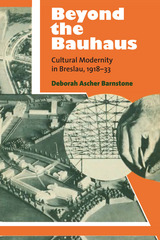
This richly illustrated volume is the first book in English to address this history, constituting an invaluable addition to the literature on the Weimar period. Its readership includes scholars of German history, art, architecture, urban design, planning, collecting, and exhibition history; of the avant-garde, and of the development of arts academies and arts pedagogy.
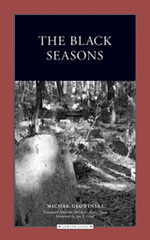
When six-year-old Michal Glowinski first heard the adults around him speak of the ghetto, he understood only that the word was connected with moving-and conjured up a fantastical image of a many-storied carriage pulled through the streets by some umpteen horses. He was soon to learn that the ghetto was something else entirely. A half-century later, Glowinski, now an eminent Polish literary scholar, leads us haltingly into Nazi-occupied Poland. Scrupulously attentive to the distance between a child's experience and an adult's reflection, Glowinski revisits the images and episodes of his childhood: the emaciated violinist playing a Mendelssohn concerto on the ghetto streets; his game of chess with a Polish blackmailer threatening to deliver him to the Gestapo; and his eventual rescue by Catholic nuns in an impoverished, distant convent. In language at once spare and eloquent, Glowinski explores the horror of those years, the fragility of existence, and the fragmented nature of memory itself.

Based on a thorough investigation of underground publications and interviews with important activists of the period from 1976-1989, Doucette shows how the independent press, rooted in the long Polish tradition of well-organized resistance to foreign occupation, reshaped this tradition to embrace nonviolent civil resistance while creating a network that evolved from a small group of dissidents into a broad opposition movement with cross-national ties and millions of sympathizers. It was the galvanizing force in the resistance to communism and the rebuilding of Poland’s democratic society.
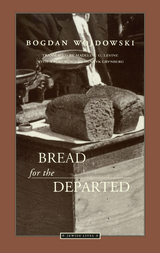
READERS
Browse our collection.
PUBLISHERS
See BiblioVault's publisher services.
STUDENT SERVICES
Files for college accessibility offices.
UChicago Accessibility Resources
home | accessibility | search | about | contact us
BiblioVault ® 2001 - 2024
The University of Chicago Press









